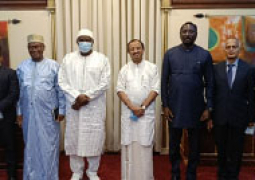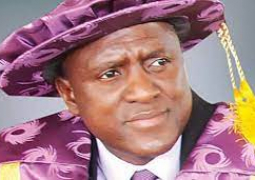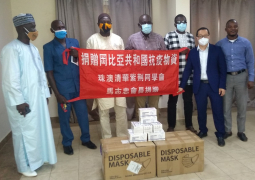The efforts were boosted when the cabinet endorsed thinking by the Office of the Attorney-General and Minister of Justice about the imperative of bringing stakeholders together to transcend the setback suffered by the draft constitution in the National Assembly after it failed at the second reading in September 2020.
From a background of close engagement with various institutions and processes of the Gambian transition since 2017, International IDEA welcomed the decision to explore an all-Gambian process that might help to reconcile positions and advance a crucial aspect of the national reform and renewal agenda namely, the making of a new constitution.
In doing so, the Institute decided to put its experience and resources at the disposal of stakeholders to help facilitate a rubbing of minds and exploration of options.
To assist the process, the Institute also proposed -and the government and other stakeholders welcomed -the invitation of the former Nigerian President HE Goodluck Jonathan to play the role of a respected, neutral, and honest broker in the series of consultations planned.
Working under the aegis of International IDEA, H.E. Jonathan from 17 to 21 December 2021 met various stakeholders.
Out of the meetings that were held from 11 to 16 December 2020 before the arrival of HE Jonathan and the consultations held from 17 to 21 December 2020 after HE Jonathan's arrival, where stakeholders engaged robustly, sharing perspectives on the draft constitution and proffering suggestions on how the constitution-making process could be revamped and brought to fruition.
In addition to H.E. Adama Barrow whom H.E. Jonathan met for a bilateral on 18 December 2020, bilateral and plenary meetings were held with the leaders and executives of most of the legally-registered political parties in the country.
Sessions were also held with civil society and faith leaders and a caucus of women leaders. At all of the meetings held, it was gratifying to note that a spirit of good will was prevalent even as leaders stated their concerns with openness and conviction.
It was possible to bring key leaders together under the same roof to identify their areas of convergence and talk through their spheres of differences. This, in turn, allowed for a clustering of the key issues at stake, in particular the points of divergence, and the agreement of a framework for tackling them early in the new year when the dialogue is scheduled to resume.
In adjourning the discussion sessions on Sunday 20 December, and keeping in mind various time sensitivities, HE Jonathan indicated to stakeholders that every effort will be deployed to ensure the work of reconciling positions and interests is advanced towards a sustainable conclusion during the course of the first half of January 2021.
International IDEA celebrates the aplomb with which most stakeholders embraced the dialogues that were convened and the leadership displayed through the 10 intensive days of discussion and reflection that took place.
The Institute acknowledges the encouragement it received from various partners, local and international, and the patient optimism shown by the civil society, faith, and women leaders as the country continues its quest for greatness in peace, stability, and justice.
Read Other Articles In National News
‘RRVCDP project aims to reduce rice importation into the country’
Mar 22, 2022, 1:17 PM




